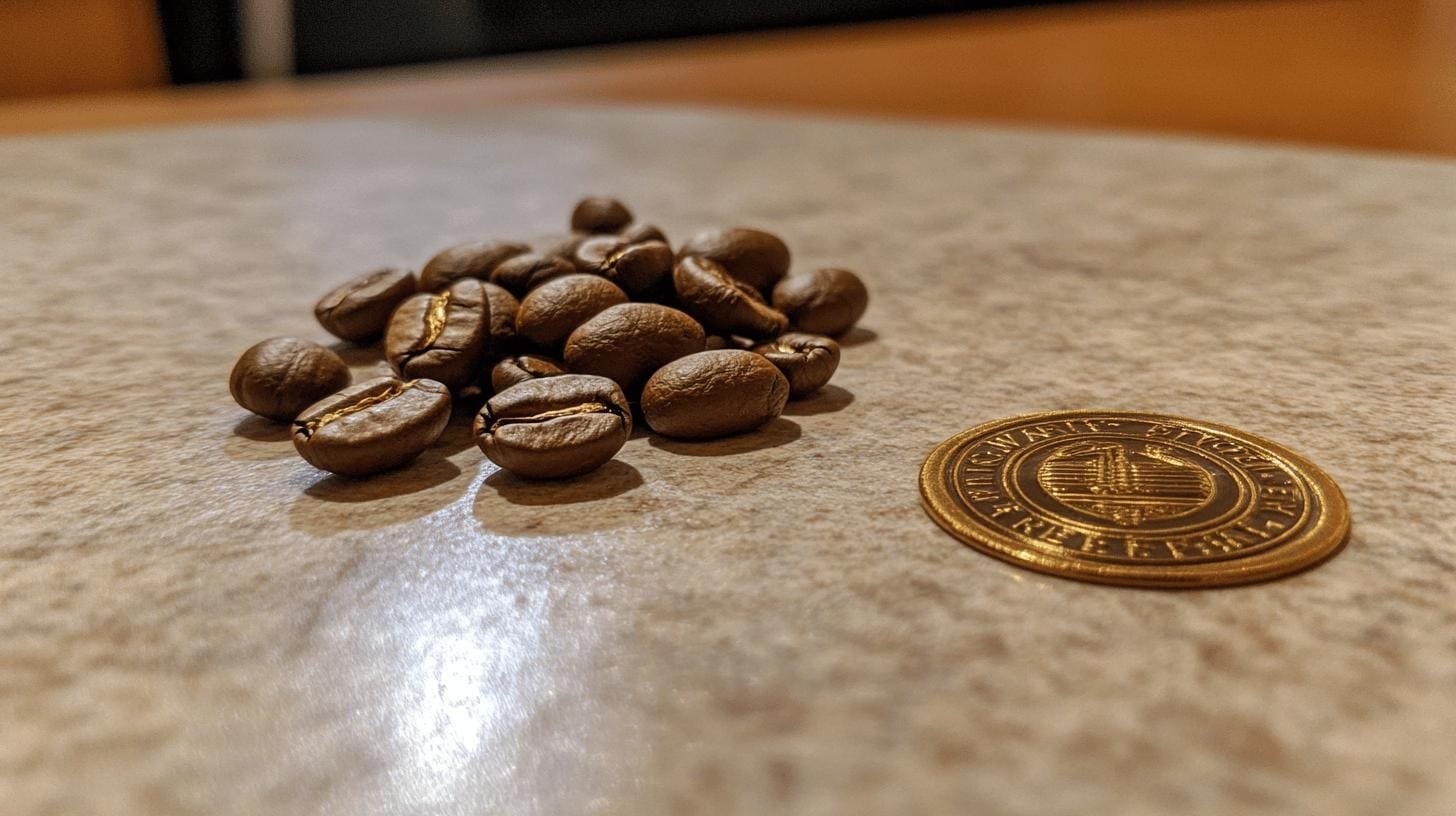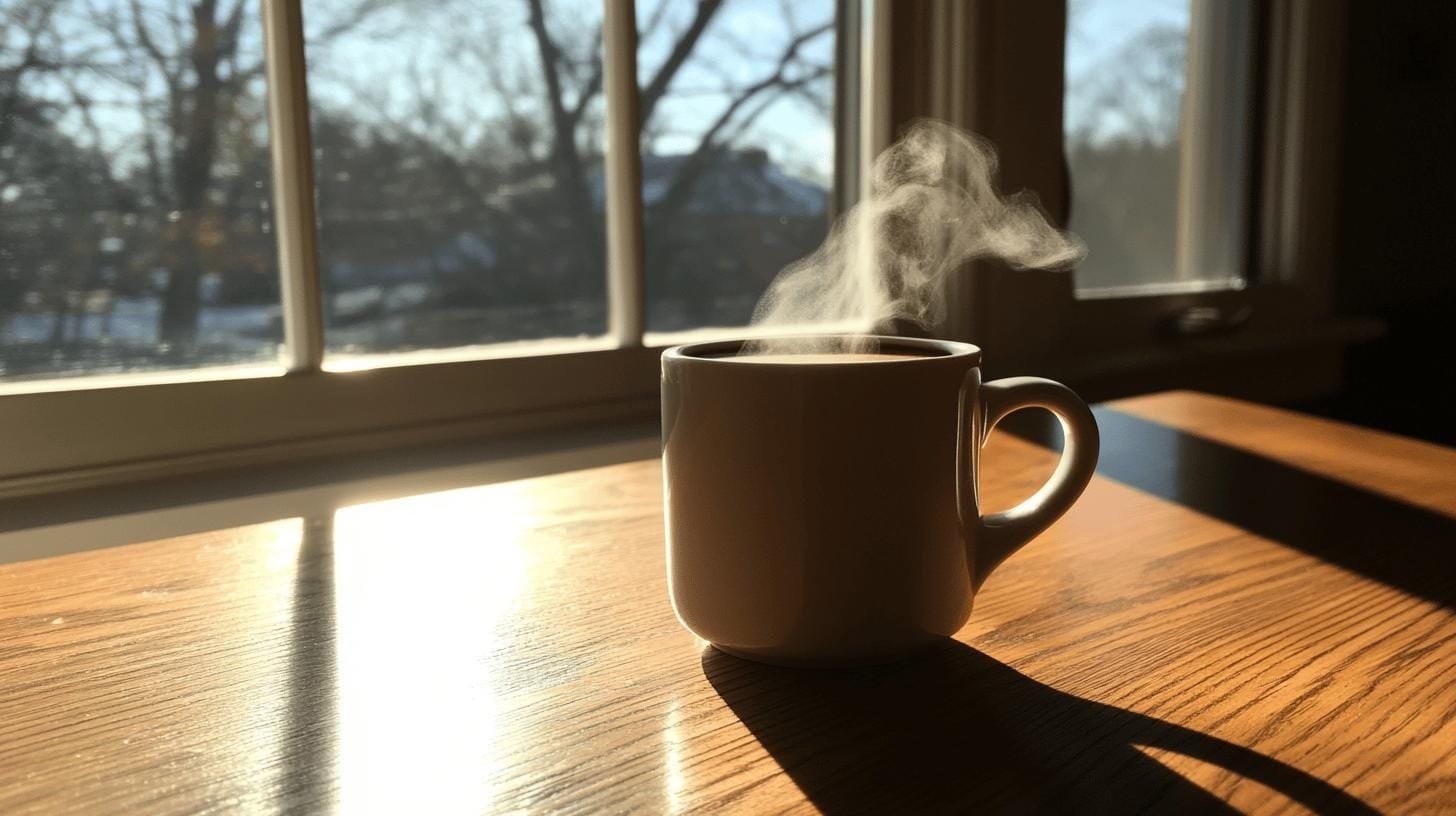
Artisanal Rituals for a Memorable Customer Experience
How can brands create a more balanced and memorable customer experience by blending artisanal product quality with thoughtful everyday rituals that keep people coming back?

Is decaf coffee really caffeine-free, or is it just a flavorful compromise for those sensitive to caffeine? Understanding what “decaf” actually means in the coffee world can demystify some of the misconceptions surrounding this popular choice.
Although decaffeinated coffee isn’t completely free of caffeine, with about 2 to 5 milligrams per 8-ounce cup, it offers significantly reduced caffeine content compared to its regular counterpart. This clarity about what does decaf mean in coffee can help coffee lovers make informed decisions about their brew preferences, balancing enjoyment with health considerations.
Decaf coffee is coffee that has undergone a process to remove most of its caffeine. About 97% of the caffeine gets extracted, but it’s not entirely caffeine-free. An 8-ounce cup of decaf usually contains 2 to 5 milligrams of caffeine, compared to 95 milligrams in regular coffee. This makes it suitable for those wanting less caffeine.
Let’s debunk some myths:
Choosing decaf offers benefits. For people sensitive to caffeine, it causes fewer issues like insomnia. Those who like coffee’s taste but wish to lower caffeine intake might prefer decaf. It allows for enjoying coffee without much caffeine.

Decaffeination is vital for people who love coffee flavors but not the stimulant effects. Understanding it helps in picking the right blend for taste and caffeine levels. Decaf keeps most flavors intact while cutting caffeine. Let’s look at three main methods: Swiss Water Process, Solvent-Based Methods, and Carbon Dioxide Process.
This method is water-based and avoids chemicals. Green coffee beans soak in hot water, dissolving caffeine and flavors. The water passes through a carbon filter to remove caffeine. The beans then reabsorb the water’s flavor compounds, keeping the taste intact. It preserves beans’ natural flavors, appealing to those who want a chemical-free approach.
This involves using solvents like methylene chloride or ethyl acetate to extract caffeine. Solvents are applied directly or via water soaking and solvent treatment. After caffeine is removed, beans are rinsed thoroughly. Though efficient, this method raises concerns about chemicals, yet approved for safe consumption.
This innovative method uses supercritical CO2. Pressurized CO2 penetrates beans to selectively remove caffeine. It’s highly effective, preserving aromatic compounds and flavor. CO2 is easily removed, ensuring no residues, offering a clean, eco-friendly alternative.
The big difference between decaf and regular coffee is caffeine content. Decaf is 99.7% caffeine-free, usually having 2 to 5 milligrams per 8-ounce cup. Regular coffee ranges from 70 to 140 milligrams, depending on type and brew. This makes decaf preferable for those sensitive to caffeine.
Decaf can taste much like regular coffee. It retains flavor compounds, especially when quality beans and advanced processes like Swiss Water or CO2 methods are used. These preserve aroma and flavor, offering a satisfying taste. While caffeine’s bitterness is absent, well-made decaf holds a robust flavor profile.
Both types offer health benefits, mainly due to antioxidants. Whether choosing decaf or regular, coffee lovers can enjoy benefits while minding caffeine preferences.

Decaf coffee is beneficial. It’s especially good for those sensitive to caffeine or wanting to lower intake. Decaf’s low caffeine minimizes risks like insomnia, anxiety, and raised heart rates. It’s a good choice for enjoying coffee flavors minus the buzz.
Decaf contains antioxidants found in regular coffee, like chlorogenic acids, which bring health benefits including reducing inflammation and disease risk, boosting well-being. Some misconceptions exist, such as thinking decaf is caffeine-free. It isn’t but retains only a small amount. There are also worries about chemical residues from some decaf processes, but these are minimal and regulated for safety. The chosen decaf method affects flavor and chemical exposure.
Decaf coffee dates back to 1906 when Ludwig Roselius developed an early method in Germany using benzene, later found unsafe. Safer methods evolved, enhancing both safety and flavor. As techniques improved, decaf started resembling regular coffee more closely, offering a good alternative for caffeine-sensitive people.
Culturally, decaf often faced skepticism for inferior taste. Yet, as methods improved, focusing on flavor and aroma preservation, perceptions shifted. Quality roasters now produce decaf on par with caffeinated types. Appreciation for its benefits is growing, making decaf a popular choice in contemporary coffee culture for those seeking varied experiences.
Exploring what decaf means in coffee reveals a rich tapestry of processes and cultural nuances. Decaf, with 97% caffeine removed, appeals to those seeking reduced caffeine intake without sacrificing flavor or health benefits. The decaffeination processes, such as the Swiss Water Process, ensure a flavorful experience.
While decaf coffee historically faced skepticism, its growing acceptance signifies its role in modern coffee culture. Understanding this balance allows coffee enthusiasts to appreciate both regular and decaf offerings, enriching their coffee experience. Whether choosing decaf for health reasons or taste preferences, embracing its nuances ensures a fulfilling coffee journey.
Decaf refers to coffee that has had most of its caffeine content removed, typically about 97%. Although not completely caffeine-free, decaf coffee usually contains 2 to 5 milligrams of caffeine per 8-ounce cup.
Decaf coffee may still cause mild side effects for caffeine-sensitive individuals, such as slight increased heart rate or anxiety, but generally, these are less common compared to regular coffee.
Decaffeinated coffee can be beneficial as it reduces caffeine intake while maintaining the health benefits associated with antioxidants found in regular coffee.
Decaf coffee generally does not significantly affect wakefulness or energy levels due to its minimal caffeine content but can still offer a comforting ritual.
Decaf coffee is made using processes like the Swiss Water Process, solvent-based methods, and the Carbon Dioxide Process, each utilizing different techniques to remove caffeine from beans.

How can brands create a more balanced and memorable customer experience by blending artisanal product quality with thoughtful everyday rituals that keep people coming back?

Independent coffee shops have always been about more than caffeine—they’re hubs of creativity, connection, and care. As café culture continues to evolve, new trends are

Introduction Independent cafes win when they feel like the neighborhood’s living room and operate with the discipline of a great kitchen. Below is a quick

Discover how top specialty coffee brands create lasting loyalty through storytelling, sourcing, and community connection. Real tips from 6 industry experts.

Discover the ultimate showdown between two beloved coffee brewing methods: the French press and Chemex. Explore how each technique caters to distinct palates, with the French press delivering bold flavors and the Chemex presenting a bright, clean taste.

Unlock the secrets to brewing the perfect cup of coffee with our comprehensive guide on using a coffee scale. Discover how precise measurements enhance flavor and consistency while eliminating bitterness.

Discover how water temperature plays a vital role in brewing the perfect cup of coffee. This article delves into the ideal temperature range of 195°F to 205°F for optimal flavor extraction, enhancing the enjoyment of high-quality beans.

Discover the world of curated specialty coffee bundles, perfect for enthusiasts seeking quality and craftsmanship. This article explores the benefits of ethically sourced, small-batch beans from brands like Equipoise Coffee, offering diverse flavor profiles that elevate your brewing experience.

Discover the art of manual brewing to elevate your coffee experience! This article explores various techniques like pour-over, French press, and AeroPress, revealing how they enhance flavor and your connection to every cup.